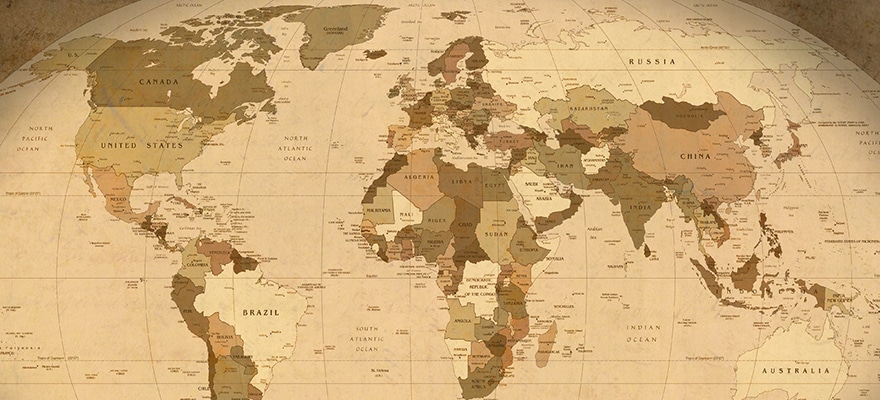The Lead Assault Forces of Global Trade
Global trade is now conducted at the consumer level. Global banks have been variously involved in digitizing trade and trade documents (without great success) and withdrawing from global markets.
Join the industry leaders at the Finance Magnates London Summit, 14-15 November, 2016. Register here!
At the same time, Alibaba, Amazon and Wal-Mart have launched full-blown e-attacks on the global marketplace. Unlike the half-baked campaigns of Amazon and Uber in China, Alibaba has launched and refined a multifaceted assault on the Chinese market by providing logistical services in the 200 'lesser cities' of China, collaborating through Cainio to deliver to 100,000 map points.
As Jack Ma stated, the miracle which China has undergone in the last 10 years is logistical, not just e-commerce per se. Additionally, affiliated Ant Financial and competing Tencent (WeChat) have developed and deployed mobile financial and Payments platforms.
These three prongs of the simultaneous deployment and confluence of support coordination, involving on-line sales, logistics and mobile payments have succeeded in China where Amazon and Uber have failed and where Uber has conceded to Didi Chuxing and Amazon has conceded to the combined forces of Alibaba, Ant Financial, WeChat and a logistical capability which Amazon has not been able to match.
Competing national platforms will now vie globally. India and Europe are are the next major battlegrounds. At the same time, Ant Financial Services Group, the financial-services affiliate of online shopping giant Alibaba Group Holding Ltd., is joining with France’s Ingenico Group SA to push its mobile-payment system into Europe.
Payments and logistics have become the lead assault forces of e-commerce.
War and Irony
I find this state of affairs to be quite ironic because WWII was won thanks to US productive and logistics prowess.
As if to prove what Churchill said about battles being won with strategy and wars being won with logistics, it is the Chinese who have lately both learned and exhibited these important lessons.
When Berlin was surrounded after WWII, it was the US that invented Electronic Data Interchange (EDI) to resupply that besieged city. It was US managers and leaders who converted their military-honed logistical skills post WWII, and developed Fedex and UPS, Toys R Us, Costco, Wal-Mart. This logistical leadership was not applied by Amazon in China.
Issues of Intellectual Property and Privacy
The Chinese model of multi-faceted global deployment is not perfect. The jumping-on unto Alibaba's platform by Chinese counterfeiters has disgusted top US retail houses.
WeChat, which provides for doing everything from e-payments to booking medical appointments, is based on a highly intrusive credit approval system which compromises privacy for the sake of ease of payment.
The same issues which Google and Apple have in deploying in Europe for example, while recording personal data on European citizens, will affect Alibaba's and Chinese e-global deployment. The standard consumer response to invasions of privacy of 'I don't care, I have nothing to hide' will not survive the scrutiny of European and US regulators. Ant Financial's and WeChat's level of intrusion is extraordinarily invasive.
Lessons Learned
It is insufficient to deploy e-commerce platforms, the shotgun, without the confluent deployment of logistical and mobile payment capabilities. Cultural nuances will kill the best marketing plan if ignored.
More and more of cross-border trade finance involves the consumer. Trade settlement and trade finance Yield increasingly to mobile payments and logistics that are closely tied to e-commerce marketing and sales.
The Shotgun and the Rifle
Journalists like Thomas L. Friedman who wrote "The World is Flat"claim that global markets are so similar that one size fits all as far as global marketing and sales are concerned. Experience in dealing with 32 different global markets has taught me otherwise. The defeats of Amazon and Uber in China, that of Uber in Singapore, by Grab Taxi and Southeast Asia, teach irrefutable lessons.
The uncoordinated attack on foreign markets without regard to what Peter Drucker said, is a prelude to disaster and abject failure. "Culture," he said, "eats strategy for breakfast."
Finally, Acquisitions vs Strategic Partnerships
There are 30 disciplines that are primary and secondary in the conduct of global trade. It is both expensive and unnecessary for one corporation to acquire all of these capabilities. It is cheaper and more efficacious to create strategic relationships that are mutually-supporting and bonded together by sustained communication.
The Lead Assault Forces of Global Trade
Global trade is now conducted at the consumer level. Global banks have been variously involved in digitizing trade and trade documents (without great success) and withdrawing from global markets.
Join the industry leaders at the Finance Magnates London Summit, 14-15 November, 2016. Register here!
At the same time, Alibaba, Amazon and Wal-Mart have launched full-blown e-attacks on the global marketplace. Unlike the half-baked campaigns of Amazon and Uber in China, Alibaba has launched and refined a multifaceted assault on the Chinese market by providing logistical services in the 200 'lesser cities' of China, collaborating through Cainio to deliver to 100,000 map points.
As Jack Ma stated, the miracle which China has undergone in the last 10 years is logistical, not just e-commerce per se. Additionally, affiliated Ant Financial and competing Tencent (WeChat) have developed and deployed mobile financial and Payments platforms.
These three prongs of the simultaneous deployment and confluence of support coordination, involving on-line sales, logistics and mobile payments have succeeded in China where Amazon and Uber have failed and where Uber has conceded to Didi Chuxing and Amazon has conceded to the combined forces of Alibaba, Ant Financial, WeChat and a logistical capability which Amazon has not been able to match.
Competing national platforms will now vie globally. India and Europe are are the next major battlegrounds. At the same time, Ant Financial Services Group, the financial-services affiliate of online shopping giant Alibaba Group Holding Ltd., is joining with France’s Ingenico Group SA to push its mobile-payment system into Europe.
Payments and logistics have become the lead assault forces of e-commerce.
War and Irony
I find this state of affairs to be quite ironic because WWII was won thanks to US productive and logistics prowess.
As if to prove what Churchill said about battles being won with strategy and wars being won with logistics, it is the Chinese who have lately both learned and exhibited these important lessons.
When Berlin was surrounded after WWII, it was the US that invented Electronic Data Interchange (EDI) to resupply that besieged city. It was US managers and leaders who converted their military-honed logistical skills post WWII, and developed Fedex and UPS, Toys R Us, Costco, Wal-Mart. This logistical leadership was not applied by Amazon in China.
Issues of Intellectual Property and Privacy
The Chinese model of multi-faceted global deployment is not perfect. The jumping-on unto Alibaba's platform by Chinese counterfeiters has disgusted top US retail houses.
WeChat, which provides for doing everything from e-payments to booking medical appointments, is based on a highly intrusive credit approval system which compromises privacy for the sake of ease of payment.
The same issues which Google and Apple have in deploying in Europe for example, while recording personal data on European citizens, will affect Alibaba's and Chinese e-global deployment. The standard consumer response to invasions of privacy of 'I don't care, I have nothing to hide' will not survive the scrutiny of European and US regulators. Ant Financial's and WeChat's level of intrusion is extraordinarily invasive.
Lessons Learned
It is insufficient to deploy e-commerce platforms, the shotgun, without the confluent deployment of logistical and mobile payment capabilities. Cultural nuances will kill the best marketing plan if ignored.
More and more of cross-border trade finance involves the consumer. Trade settlement and trade finance Yield increasingly to mobile payments and logistics that are closely tied to e-commerce marketing and sales.
The Shotgun and the Rifle
Journalists like Thomas L. Friedman who wrote "The World is Flat"claim that global markets are so similar that one size fits all as far as global marketing and sales are concerned. Experience in dealing with 32 different global markets has taught me otherwise. The defeats of Amazon and Uber in China, that of Uber in Singapore, by Grab Taxi and Southeast Asia, teach irrefutable lessons.
The uncoordinated attack on foreign markets without regard to what Peter Drucker said, is a prelude to disaster and abject failure. "Culture," he said, "eats strategy for breakfast."
Finally, Acquisitions vs Strategic Partnerships
There are 30 disciplines that are primary and secondary in the conduct of global trade. It is both expensive and unnecessary for one corporation to acquire all of these capabilities. It is cheaper and more efficacious to create strategic relationships that are mutually-supporting and bonded together by sustained communication.


















